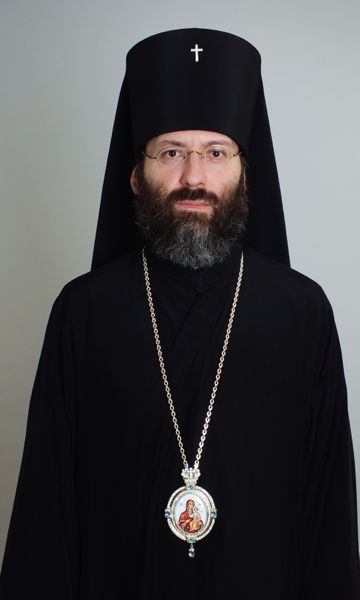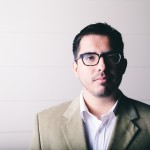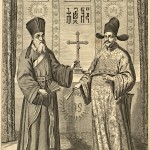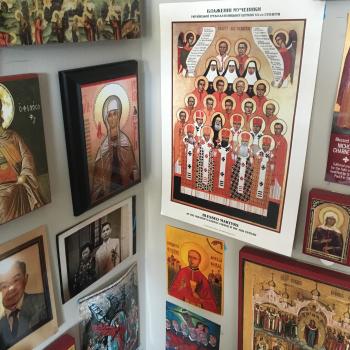
Who is Archbishop Job of Telmessos? From 2013-5, Archbishop Job was the archbishop overseeing the Archdiocese of Russian Orthodox churches in Western Europe, which is a part of the Ecumenical Patriarchate of Constantinople, not the Moscow Patriarchate; in 2015, he became the Ecumenical Patriarch’s representative at the World Council of Churches in Geneva and is described in the RISU interview also as a ‘representative of the Patriarch of Constantinople’ who was invited by Ukraine’s president to join in the celebrations of the Baptism of Rus’ (the event that Christianized Kyivan Rus’ in the tenth century) in late July. He is himself Ukrainian Canadian.
Everyone else (including me) has, of course, been talking instead and incessantly about the Drumpf Campaign meltdown in the past few days. However, Archbishop Job suggests that this means that nobody is talking about other stuff that matters in the world. ‘The information is certainly available,’ he says, ‘and there are various contradictions in this information, but, frankly speaking, they write not much about Ukraine in the media outside Ukraine.’ But I do not feel the obligation to keep harping on Drumpf; in fact, I’ve written about Drumpf already by exegeting Ivanka’s Republican convention speech two weeks ago, and I feel like I do not have much to add to what I said there. Moreover, because Drumpf’s campaign manager is Paul Manafort – former Ukrainian president Viktor Yanukovych’s old advisor – I don’t think what I’m saying is irrelevant to our civil society discussion, though I am also unsure as to how exactly relevant it is either. I hope to get back to this at the very of this piece, and I hope that you get there too, eventually.
By posting something like the Job of Telmessos interview, I am manifestly not saying that I am an expert on Orthodoxy or Ukraine or ‘Russian World’ ideology. I am in fact quite the opposite. If you would like to see a complete disaster of a blog post I did on Orthodoxy earlier this year during my catechumenate, check out my thoughts on the Anglican Communion and Orthodox-Catholic politics in anticipation of the Archbishop of Canterbury’s gathering of the primates in January. Every single prediction I made in that post turned out wrong, but I learned a lot from writing it and even more from the brilliant feedback I received from my Orthodox, Eastern Catholic, Latin Catholic, and Anglican friends. One Antiochian Orthodox commentator on Facebook even deigned to call it (almost endearingly so) ‘zany and madcappy.’ I thought that was amazing.
Instead of trying to be a pontificating expert, I consider all of this reading and writing as part of my mystagogy as a recently chrismated Eastern Catholic neophyte, a beginner in the faith that’s just getting to know things from inside my church. Because I am a neophyte, there will of course be things that I don’t yet know, and if you know things better than me, you should of course educate me. However, weighing in as an Eastern Catholic on Orthodox internet is also pretty much going to be baptism by fire (wait till I get called a ‘Uniate’!). This should be very fun indeed, and it should be taken as an announcement that I will try to engage Orthodox politics on this blog, not least because the hope against hope (pace St Paul) as stated in some Eastern Catholic quarters is for what Melkite Archbishop Elias Zoghby (eternal memory) called ‘the project of double communion’:
In addition ecumenical action necessitates, above all, that each Church return to its own sources. Thus each of the Catholic Uniate Churches [sic], that considers itself as belonging to the Patriarchate of Antioch or as deriving from it, has its own roots which are not identical with that of the others. Each has its own history and traditions that link it organically with the Orthodox Church from which it separated itself, and this is what differentiates it from other Catholic Churches that claim the same patriarchate. An elementary rule that must preside over all ecumenical endeavors, insists that each Eastern Catholic Church search for and try to draw near to the Orthodox Church of that rite from which it separated itself. (Zoghby, We Are All Schismatics, p. 106).
As one of the leading theologians of my church Fr Andriy Chirovsky often points out, there is often a misunderstanding that the Ukrainian Greco-Catholic Church (UGCC) somehow separated itself from the Russian Orthodox Church and therefore should seek reunion, as per Zoghby, with Moscow as its mother church. The truth, as Chirovsky puts it, is a little bit more complicated:
Endless references to the thousand-year estrangement between Rome and Moscow display ignorance of the fact that 1,000 years ago the Patriarchate of Moscow did not exist. It was created in 1589. Even the position of Metropolitan of Moscow goes back only to 1448. The creation of the Moscow Metropolitanate was a direct reaction to the fact that the Church of Kyiv (Kiev) had re-established full communion with Rome at the Council of Florence through Metropolitan Isidore. The Metropolitan of Kyiv, Petro Akerovych, had attended the First Council of Lyons in 1245. Moscow cannot claim the history of the Kyivan Church as its own and simultaneously ignore such momentous moments in that history. Furthermore, the Kyivan Church re-established full communion with Rome in 1596 through the Union of Brest, an explicit revival of Florentine models of unity, only to be beaten back by rivals who did not accept this Union. Even so, the Orthodox Metropolitan of Kiev, Petro Mohyla in the 1640’s, made contacts with Rome and was the author of yet another proposal for renewing communion with Rome, on what he considered slightly better terms. Now, either the history of the Church of Kiev is a separate reality from that of Moscow, or it is part and parcel of Russian Orthodox identity. Moscow cannot have it both ways. Alas, Moscow does do its best to obfuscate matters. The Moscow Patriarchate (founded 1589) claims to be the Mother Church for the Church of Kiev (founded 988). George Orwell would smile at this sort of Double-speak. That is why Moscow does not correct commentators who talk about the thousand-year estrangement. It all makes Moscow look more exotic, more like a great prize to be wooed at all costs.
To beat back these misunderstandings (especially because they usually circulate in well-intentioned circles trying to coordinate Catholic-Orthodox ecumenism), Fr Chirovsky and others helped to coordinate the Kyivan Church Study Group in the 1990s, an effort for the UGCC to be able to dialogue and perhaps even seek double communion with its real mother church, the Ecumenical Patriarchate of Constantinople, which was the Church that originally evangelized Kyiv in the tenth century, leading to the baptism of Prince Voloydymyr and the Christianization of Kyivan Rus’.
As I’ve observed, my church is (and therefore I am, as a part of that church) therefore generally interested in any dialogue that Kyivan Christians are having with Constantinople, even if we are not yet in full communion with these parties. In fact, our Patriarch Sviatoslav made it abundantly clear from the beginning of his patriarchate that he was very interested in double communion with the Orthodox:
We cannot be indifferent to the fact that the descendants of the Baptism under St. Volodymyr today are divided and estranged from one another. At the Last Supper, Christ prayed to His Heavenly Father for his disciples, “that all may be one” (John 17:21). Bearing in mind these words of Christ, I sincerely ask you all today – let us pray for the unity of the Church, let us pray for the restoration of unity of all the churches of the Kyivan tradition. (Patriarch Sviatoslav, ‘The Vibrant Parish – a place to encounter the living Christ!’ 2 December 2011).
As part of the Church of Kyiv seeking to reunite a fragmented local church, they are in fact us, and we are in fact them; we are in fact, as Fr Chirovsky once put it in a now-classic article in Logos: A Journal of Eastern Christian Studies, ‘Orthodox-in-communion-with-Rome.’ But reunion is complicated because it is possible to see the Kyivan Church as split at least four ways: the UGCC, the Ukrainian Orthodox Church-Moscow Patriarchate (UOC-MP), the Ukrainian Orthodox Church-Kyivan Patriarchate (UOC-KP), and the Ukrainian Autocephalous Orthodox Church (UAOC). This list of Byzantine churches doesn’t even begin to include the Latin Catholics and the various Protestant denominations, not to mention the array of other religious groups also in Ukraine.
But some progress has been made. Last December, there were talks about uniting an eparchy between the UGCC and the UAOC. Before that, there was a UAOC archbishop who wrote a stunning piece saying that the UGCC is not only an authentic part of the Kyivan Church, but the most authentic piece of it:
Do not forget that the only church that really has preserved the continuity of the Kyivan tradition –is the Greek Catholic Church. All the Orthodox churches that exist here, unfortunately, broke with the tradition after 1686, when our church was subordinated to Moscow and rapidly assimilated with it. In the secluded environment of Galicia, the Greek Catholic Church was able to carefully nurture the Kyivan local tradition without being dissolved in Polish Catholicism. From the end of the XIX century, largely thanks to Metropolitan Andriy Sheptytskyy, whose anniversary we are now celebrating, it started regaining those features of Ukrainian identity, which we all now need in Ukraine. (Archbishop Ihor (Isichenko), UAOC, 21 Aug. 2015).
So too, when the Ukrainian Parliament – the Verkhovna Rada – appealed to the Ecumenical Patriarchate just before the Orthodox’s Holy and Great Council in June to grant the Ukrainian Orthodox Church autocephaly (the ecclesiastical independence to head their own church), this was certainly of interest, and in this interview, one of the things that Archbishop Job does is to respond on behalf of Constantinople. In other words, to get up to speed on this news is definitely part of my mystagogy because it gets me participating in the life of my church, which is the life of the Church as we seek to find ways forward to heal the schisms of the past.
So without further ado, what follows are three things I learned from the interview. Strangely enough for issues so central to Eastern Europe, they all have to do with the Orthodox question of what exactly is a canon. For your reading ease, I’ve broken these thoughts up over three pages; please do let me know if this format is helpful for the future. Indeed, some have let me know that too many breaks in these thought pieces is too distracting, and I am grateful for this feedback. Much of what I say here will be obvious to many of my Byzantine readers; for that, I ask you to forgive me, as these thoughts are not meant to be original (as that would render this publishable in a peer-reviewed academic journal), but they are rather notes for my own mystagogy, presented here for your criticism. In them, I simply attempt to follow Archbishop Job’s thinking; my own reflections on them are unfortunately quite superficial at this point.
DISCLAIMER: In so doing, I am not weighing in on his or the Ecumenical Patriarchate’s actions in the Paris Exarchate, some details of which can be found here. That’s for another post. If I can be critical of a Bishop of Rome that I love, I’m sure I can return the courtesy to Constantinople as well. This post is already tl;dr as it is. Here I lay out what Archbishop Job says, and I confess, I’m sympathetic. In future posts, I’ll talk about his limits.












